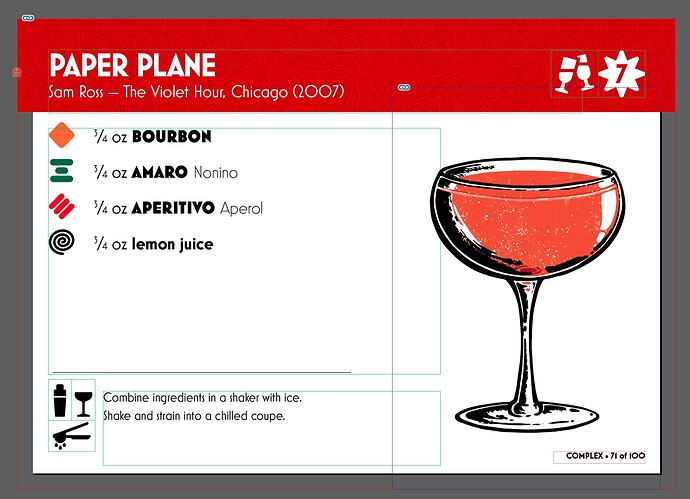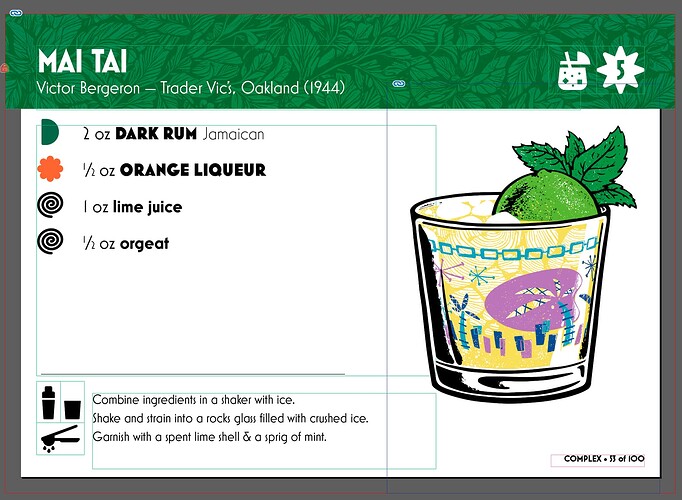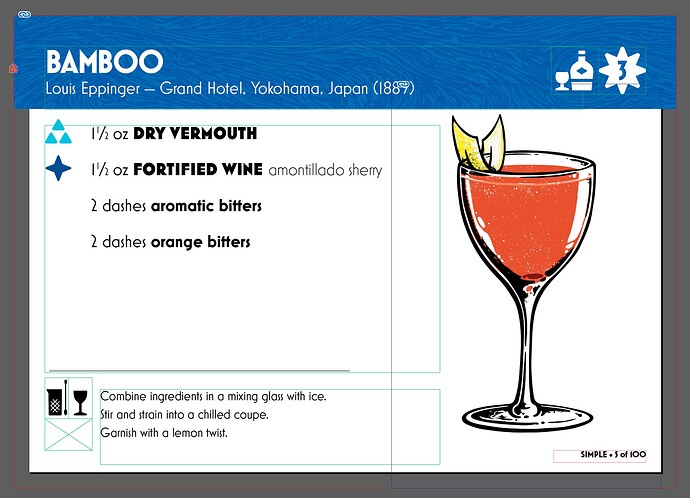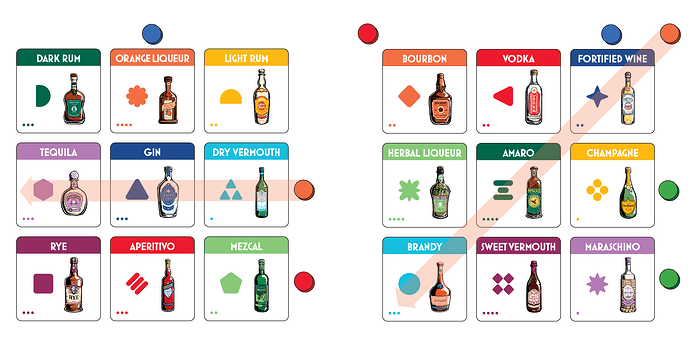For the past several years I’ve been developing a tabletop game about making cocktails, where the primary playing pieces are real cocktail recipe cards that look something like these screenshots from my design software:
The game development is pretty far along – I had been planning on running a small crowdfunding campaign this summer and printing in the fall/winter until the tariff situation made budgeting that far in advance impossible.
But even though the game is nearly done, so far I’ve primarily been testing with gamers at game conventions, and I’d love the perspective of cocktail aficionados like the members of this forum, even those who don’t have much experience with contemporary boardgames.
In addition to the game itself, I’m looking for feedback on some of the abstractions and shortcuts I made for smooth gameplay and getting the total number of spirit/liqueur ingredients down to 18 unique cards.
And there’s the whole issue of creators/origins. The contemporary drinks are fairly straightforward to credit, but older ones can be murky, and I don’t want to put out any info that’s blatantly wrong to further muddy the waters. Between the Total Mixology and the Oxford Companion and dozens of other reference books I’ve tried my best, but there are a few drinks that I’m not sure how to credit usefully.
I’m based in Philadelphia, and I get up to New York fairly regularly. I’d happily buy a round for anyone who’s willing to try it out. Maybe we could find a quite corner at Long Island Bar on a weekend afternoon this summer? If anyone would be interested, please let me know.



